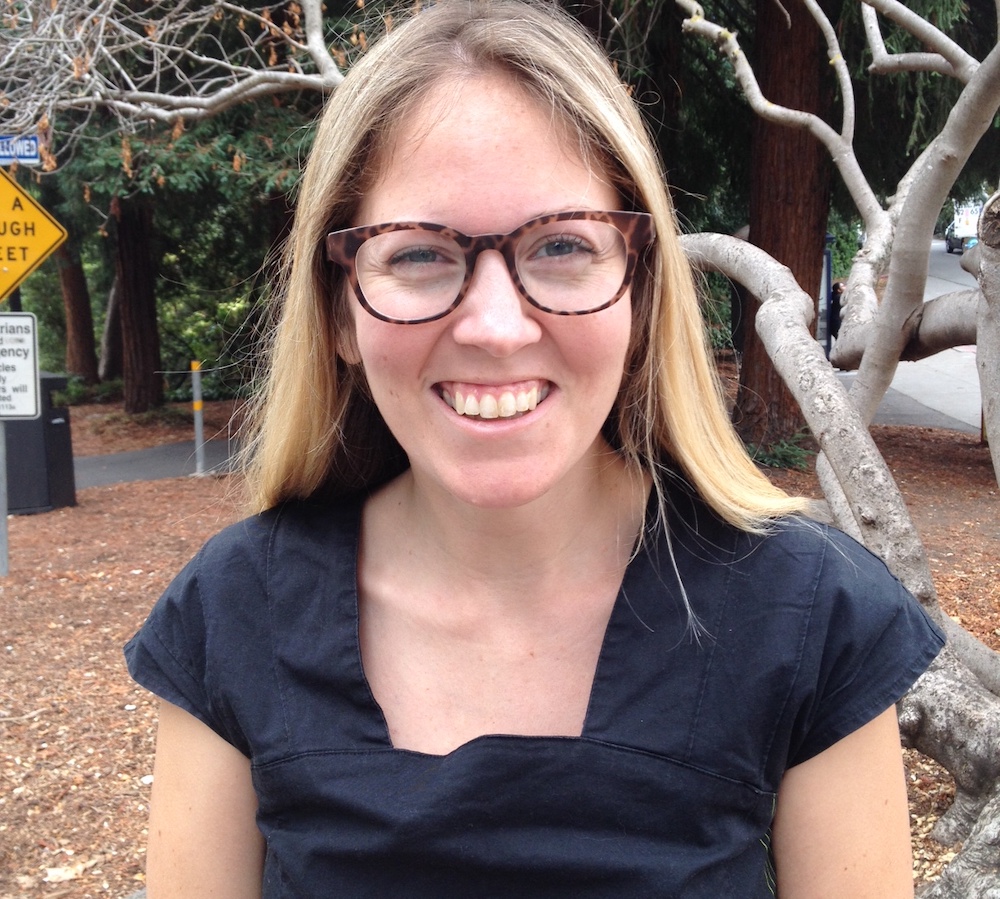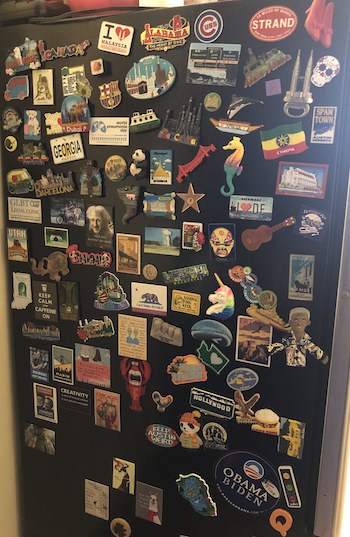
Courtesy of Abbie VanSicklee.
Abbie VanSickle covers criminal justice in California for The Marshall Project and lectures at the UC Berkeley Graduate School of Journalism. Before joining a Zócalo/California Wellness Foundation event, “Has California Ended Mass Incarceration?,” she joined the virtual green room to chat about growing up in the corn fields of Illinois, quarantine cabin fever, and how she prepares for tough interviews.
What did you have for breakfast this morning?
I actually did not have any breakfast. I was trying to get my kids out the door and just did not have a chance. I have a 1-year-old and a 5-year-old. Last week was my first week of full childcare since March 13th, I think. It was rough.
How have you been decompressing during quarantine?
Living in California helps because we have been going to the beach and going on walks a lot, and that’s been crucial. I don’t know how I would have made it through without nice weather.
Have you had a guilty pleasure in quarantine?
I would say the biggest guilty pleasure is that for the first few months we got a Chez Panisse garden box. [Chez Panisse is] this amazing Berkeley restaurant, which we could never go to because we have little kids. But suddenly, we’re actually able to get some nice take-out at places that we would otherwise have to wait for our once-a-year date.
Before you became a journalist, you practiced law. What do you miss the most about being a lawyer?
My favorite part of practicing law is also my favorite part of journalism: being able to spend time with people and hearing their stories and trying to be able to explain and give a voice to other people.
Why did you decide to make a career change?
It’s a little complicated. I started down this path when I was an undergrad at journalism school where I worked on [the Medill Innocence Project] and looked into this potential wrongful conviction in Illinois of a man who was on death row. That really sparked my interest to both investigative reporting and law, because I saw that they both had a lot of potential to make change.
I covered criminal justice as a newspaper reporter in Florida. Then I came to Berkeley and worked at the death penalty clinic when I was in law school. I worked for a year in Cambodia at the international court, and then as a public defender in Seattle. And then I came back to Berkeley and started to teach, and then worked on investigative reporting again there. It’s not a linear path, but that was my path—couldn’t get away from journalism.
Where was your favorite place to go as a kid?
Getting a chance to go to Chicago, especially to the Art Institute there. That was my favorite place when I was a kid. It still is one of my favorite places. It helped open up the world to me because my world was pretty small when I was growing up. It helped me see that there was a larger place out there to explore.
You’ve done some really tough interviews—how do you prepare for them?
Before interviewing someone, I try to read everything I can and think through what information I really want to be able to get out of an interview. I used to write out specific questions, but I actually found that that didn’t help me to actively listen to what someone was saying. So now, I try to just write out bullet points. I can glance down at that and make sure that I haven’t missed anything big when I’m talking with someone.
How do you maintain your sanity when you’re in the weeds on a particularly disturbing subject?
I tend to get really, really in the weeds and really focused. I try to take an hour every day to go running or just shift where I am, because otherwise I get too into it. Of course, what I’m doing is nothing compared to the people who are actually experiencing—whether it’s that Ohio story with the kids who are trafficked or the people who were choked by the officer in George Floyd’s case—my life is a lot easier.
When in your life have you experienced the most culture shock?
It would seem like maybe it was moving to Cambodia or I lived in South Africa, but actually I think it was when I left my hometown in Indiana and went to college. I was from a very small, sheltered place—I grew up in the corn fields outside of a small town. And so it was quite a shock to suddenly be surrounded by people who had totally different backgrounds from mine.
What’s hanging on your refrigerator?
I have maybe a hundred magnets that I collect every time I go somewhere. I get the most tacky, hideous magnets that you can possibly find, anytime I go anyplace. It’s just one small way of bringing a reminder. Especially now—not being able to travel anywhere, even to do basic reporting—it’s really nice to look at it and think, “Oh yes, someday I’ll be able to leave my house again.”

Where are you most excited to travel to once it’s possible again?
I would love to go anywhere. Even this last weekend, we went into San Francisco to this old traditional Italian neighborhood and sat in the park and ate gelato, and I felt like I’d been transported. I’d love to go and see my family, because I haven’t seen them in more than a year. I would love to just take a vacation with our kids. Really, I would be happy to go on my usual journalism trips, which don’t really take me to the most scenic places—any place. I love traveling and this is the longest that I’ve been just in one spot.
I love where I live, and I love the Bay area, but to me, [spending time with people is] the way to get the best journalism. And also the most fulfilling—to just spend time in someone else’s life for a while. We have Zoom, but it’s not really the same thing.



